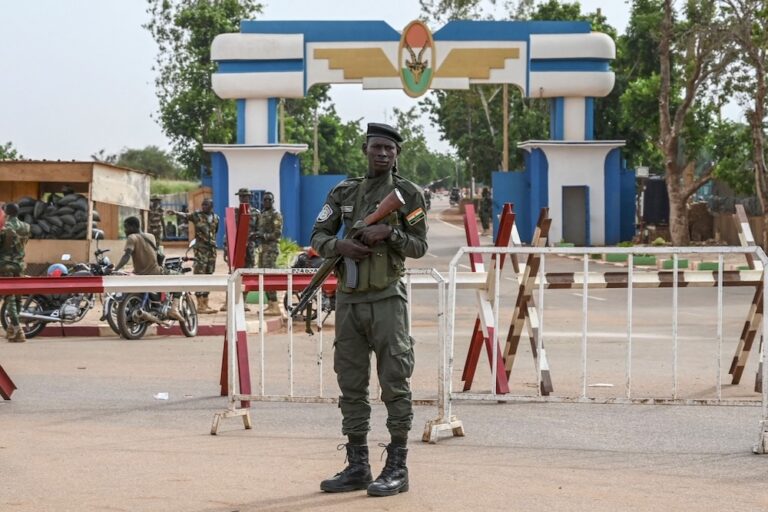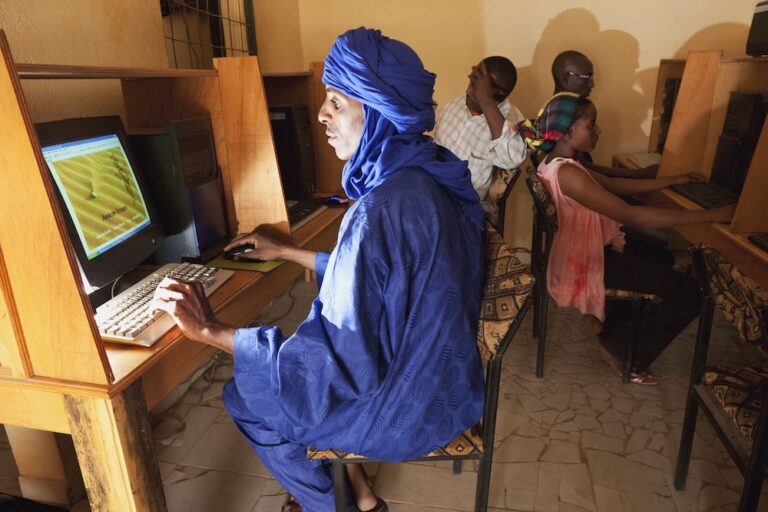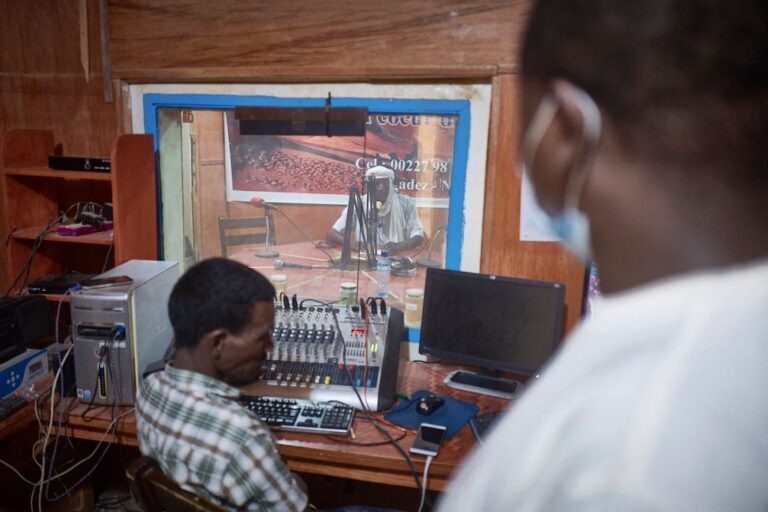(IFJ/IFEX) – The following is 7 October 2008 IFJ media release: IFJ Welcomes Release of Journalist Moussa Kaka in Niger The International Federation of Journalists (IFJ) today welcomed the provisional release of Moussa Kaka by authorities in Niger after the journalist spent more than a year in detention on charges that he was linked to […]
(IFJ/IFEX) – The following is 7 October 2008 IFJ media release:
IFJ Welcomes Release of Journalist Moussa Kaka in Niger
The International Federation of Journalists (IFJ) today welcomed the provisional release of Moussa Kaka by authorities in Niger after the journalist spent more than a year in detention on charges that he was linked to rebels in the northern part of the country.
“We believe that all accusations against Moussa Kaka are baseless and that he was targeted for his investigative reporting,” said Gabriel Baglo, Director of the IFJ Africa Office. “His conditional release is indeed good news to the media fraternity on the continent, despite the fact that he was unjustifiably held in appalling and inhumane conditions for over a year even after two judges ordered him released.”
Kaka, director of the private radio station Saraouniya Radio and local correspondent of French radio broadcaster RFI, was arrested by the police in Niger on September 20, 2007, and charged with “endangering the safety of the state for suspected links with the Tuareg-led rebels in the north of the country.”
On November 16, 2007, a magistrate in Niger refused to accept as evidence tapes of Moussa’s conversation with the rebels, on the grounds that they were obtained illegally. Similarly, on July 23, 2008, another judge dismissed the case against the journalist and ordered his release.
Kaka still faces an upcoming trial on less serious charges in the capital of Niamey but no date has been set.
The IFJ hopes that the decision to free Kaka will quickly be followed by his exoneration on all charges.
The IFJ calls on the government of Niger to put an end to all forms of intimidation and harassment of journalists working in the country.
“The continued barrage of arrests and closure of media outlets in Niger is an attempt to deter journalists from carrying out their noble duties,” Baglo said. “This is simply unacceptable in a democratic country.”
The IFJ represents over 600,000 members in 120 countries worldwide.


